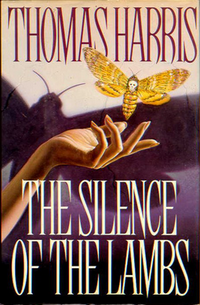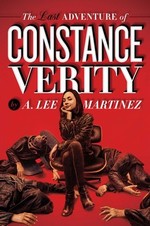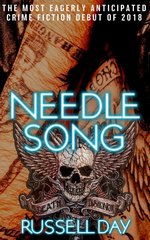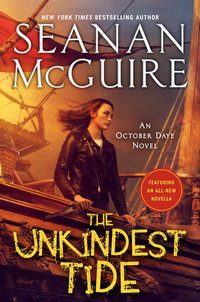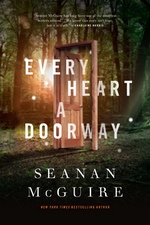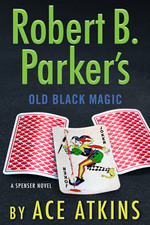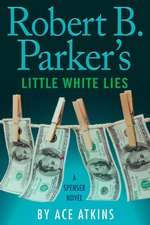
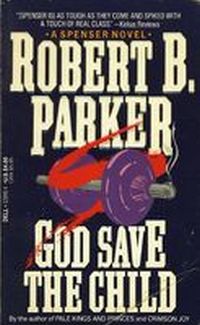 |
God Save the Childby Robert B. Parker Mass Market Paperback, 202 pg. Read: February 25, 2020 |

He hunched the chair forward and wrote a check on the edge of my desk with a translucent ballpoint pen. Bartlett Construction was imprinted in the upper left corner of the check—I was going to be a business expense. Deductible. One keg of 8d nails, 500 feet of 2×4 utility grade, one gumshoe, 100 gallons of creosote stain. I took the check without looking at it and slipped it folded into my shirt pocket, casual, like I got them all the time and it was just something to pass along to my broker. Or maybe I’d buy some orchids with it.
A nice bit of description, a bit of wit and a Nero Wolfe reference. Not a bad start.
I’m not certain, but I think this was the first Spenser novel that I purchased, and I’d read a handful before then (my then local library started with book 3). It was a new copy (an extravagance for me then), and justing by the state it’s in, I may have to buy myself a replacement copy after one or two more reads. Actually, it may not survive another whole read (that back cover is holding on by strength of will).
Which is just a long-winded way to say that it’s not like I read this with fresh eyes.
Roger (call him “Rog”) and Marge Bartlett have come to Spenser for help finding their fourteen-year-old son, Kevin, who has seemingly run away from home with the clothes on his back and his pet guinea pig. He’s been gone a week, and the local police haven’t been able to do much. Spenser assures them that unlike the police, the only thing he has to focus on his hunting for Kevin—not breaking up fights, ticketing speeders, arresting drunks, etc.—”Also, maybe I’m smarter than they are.”
During their initial consultation, we see that the couple is also a bit more focused on other things than Kevin. Marge is sure to work in references to her acting and cooking classes, she’s a self-described creative person who has to express it. Rog seems a bit more focused on the bottom line (which he might need to be, since Marge seems to spend money like it’s going out of style). By the end of the book, my impression is that Rog is trying to do the right thing for his family, has some real concern over Kevin, but maybe doesn’t know how to show it. Marge is too self-involved for my taste and doesn’t come across very well (and has some other problems I won’t get into). But when the chips are down, both will selflessly and reflexively react to help their son. Their daughter, Kevin’s younger sister, is practically ignored throughout and I always feel bad for her. We’ll see an echo of this couple (with significant variations) in Promised Land in a couple of months.
The Bartletts live in Smithfield, which a fictionalized version of Lynnfield, MA. There are some pretty good reasons that Parker probably had to change the name in this novel, but as Spenser spends time in almost every novel since in Smithfield, I wonder if he ever regretted it.
Police Chief Trask is this close to being a tough-guy cartoon of a cop. He’s far more concerned with making sure that Spenser knows that he’s running the show than he is in anything Spenser has to say on their initial meeting (and he doesn’t improve much after this). He’s done some checking on Spenser and the two banter a bit about Spenser’s record. Well, Spenser banters and Trask tries to push him around, anyway.
Before Spenser can do too much on his own to find Kevin, a very strange looking ransom note shows up. Which brings the Massachusetts State Police, in the person of Lt. Healy, into things.
Healy I knew of. He was chief investigator for the Essex County DA”s office. There were at least two first-run racketeers I knew who stayed out of Essex County because they didn’t want any truck with him.
Healy said, ‘Didn’t you used to work for the Suffolk County DA once?”
I said, “Yes.”
“Didn’t they fire you for hotdogging?”
“I like to call it inner-directed behavior,” I said.
“I’ll bet you do.” Healy said.
Healy is tough, smart and ethical—and has little respect for Trask. He and Spenser work together pretty well, and Healy will appear or be mentioned in another dozen Spenser novels before making regular appearances in the Jesse Stone books.
From this point, things get strange—the ransom note is just the beginning, and a strange kidnapping will evolve into a murder case, a drugs and prostitution ring, and . . . well, more things. As with The Godwulf Manuscript the climactic fight involves two people who have no business engaging in hand-to-hand combat. Unlike last time, Spenser’s not sidelined for this fight and gets involved as well—it’s one of my favorite fight scenes in the series. Parker shows off his knowledge of and affinity for boxing here. Spenser’s motive for engaging in the fight isn’t necessarily pure, and I kind of like how honest Parker and Spenser both are about that.
As nice as that scene is, that’s not the end of the story—and whatever victory Spenser enjoys, it’s empty. Which is a nod to Spenser’s noir lineage and something that will show up again and again in the series.
While we’re introduced to Spenser in the previous novel, it doesn’t feel quite like a Spenser novel. But God Save the Child does. The same flavor, pacing, and approach to the story that are here are in almost every thing that Parker does with the character from this point forward. The character will evolve from novel to novel, but the series really starts here.
Possibly the biggest reason for that is that it’s in these pages we meet Susan Silverman. She’s the guidance counselor at Smithfield High School and after the Assistant Principal demonstrates that he’s useless for giving Spenser any insight into Kevin, she’s who Spenser turns to. Spenser’s described quite a few women prior to this, but from the first paragraph, Susan’s different.
Susan Silverman wasn’t beautiful. but there was an intangibility about her a physical reality, that made the secretary with the lime-green bosom seem insubstantial. She had should-length black hair and a thin dark Jewish face with prominent cheekbones. Tall, maybe five seven, with black eyes. It was hard to tell her age, but there was a sense about her of intelligent maturity which put her on my side of thirty…When she shook hands with me, I felt something click down the back of my solar plexus.
I said hello without stammering and sat down.
Parker’s not quite as blatant about it as Henry Fielding is about Sophie (for those who’ve been reading my Fridays with the Foundling series), but he’s fairly obvious in the way he portrays Susan in this scene (not to mention the several that follow) that she’s different. Exceptional. She ends up being the love of Spenser’s life and shows up in every book hereafter. But for now, they’re just meeting, but there’s a spark between the two of them and Spenser soon asks her to dinner.
I had just finished washing my hands and face when the doorbell rang. Everything was ready. Ah, Spenser, what a touch. Everything was just right except that I couldn’t seem to find a missing child. Well, nobody’s perfect. I pushed the release button and opened my apartment door. I was wrong. Susan Silverman was perfect.
It took nearly forty years of savior faire to keep from saying “Golly.”…
“Come in,” I said. Very smooth. I didn’t scuff my foot; I didn’t mumble. I stood right up straight when I said it. I don’t think I blushed.
During their date, Susan makes the following observation about Spenser,
So, sticking your nose into things and getting it broken allows you to live life on your own terms, perhaps.
Spenser is impressed with this insight—and it’s a recurring theme for the two of them to talk about for the next few decades—with each other or when Susan tries to explain Spenser to others. The choices he’s made in his life—relational, vocational, lifestyle, what have you—are all about living life on his own terms. There’s a lot to be commended in this approach, and some problems (in two books we meet a more extreme version of someone living this way…but that’s for another day). Another frequent thing that comes up in their conversations appeared for the first time when they met.
“Why do you want to know?” [Susan asks]
“Because it’s there. Because it’s better to know than not to know in my line of work.”
If I had a quarter for every time the two of them said this (sometimes he does the set up), I’d be able to buy my replacement copy of this book.
It’s not just because they say the same things in almost every book (wow, it sounds dull when I put it that way—it’s not, at least not for several years), it’s the effect that Susan has on Spenser that changes the series. It made Spenser stand out from the rest of the genre’s tough guys. I could go on and on about Susan or Susan-and-Spenser, but I’ll hold off on it for now.
As chapter two begins, we’re treated to four long paragraphs (about two pages in my edition) describing the route between Boston and Smithfield, with commentary from Spenser on the scenery, traffic, businesses, etc. that he comes across. This is something that Parker excels at—and doesn’t do nearly often enough (but at least once a book). I’ve never been in that part of the world, I defiantly can’t go to the version of that area that existed in 1974—but I walk away from this description feeling like I know the area.
As far as recurring characters go (other than Healy and Susan), Frank Belson makes a quick appearance, and we meet Henry Cimoli—who runs the Harbor Health Club, Spenser’s gym. Henry’s importance will ebb and flow (as will the frequency of appearances) over the rest of the series, but he’s a constant enough presence that it’s good to meet him for the first time here.
There’s a lot more that could be mined from these pages, but this has gotten too long. I may pick up a strand or two in the future, but we’ll see. God Save the Child seems to be a story about a runaway (or a kidnapping?), but really it’s about a young man struggling to understand his place in the world, parents who aren’t sure how to parent, and a detective starting to change his place in the world. There’s a lot of wit, some good social commentary, some decent detecting, and a great fight scene—all expertly and (seemingly) effortlessly written. That’s a reductionistic way to look at it, but that’s a Spenser novel in a nutshell. I loved revisiting it, and can’t wait to get to the next book.
This post contains an affiliate link. If you purchase from it, I will get a small commission at no additional cost to you. As always, opinions are my own.
![]()


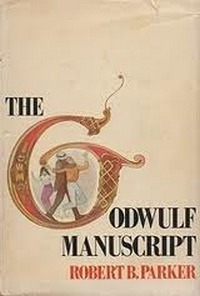
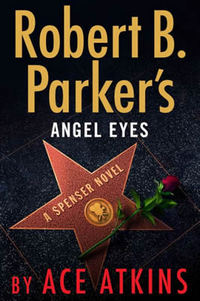



 Dracula: a book with a charismatic villain
Dracula: a book with a charismatic villain